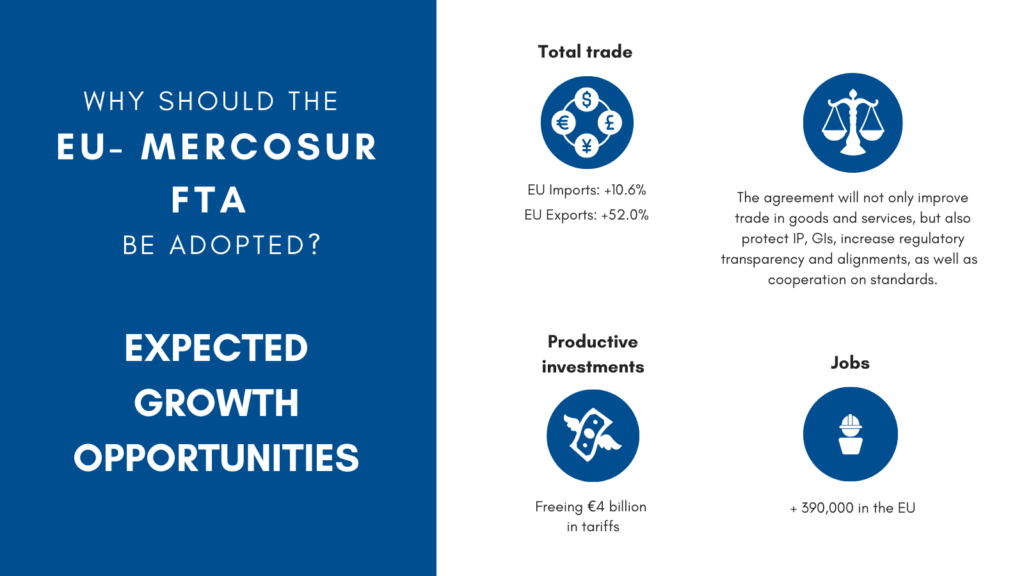EU associations call for the swift ratification of the EU-Mercosur trade agreement process
On 28 June 2019, the EU and Mercosur states reached a political agreement for an ambitious, balanced and comprehensive trade agreement. Two years after, a coalition of 12 European business associations representing different European sectors call for the swift ratification of the process, to move forward and unlock the manifold mutual benefits that this agreement will deliver.
The EU-Mercosur agreement:
- is the largest and most ambitious trade agreement ever negotiated by both sides, provides regulatory certainty for both trade in goods and services, and establishes better trade links between countries of respectively 440 and 260million citizens. The agreement will unlock growth and help both regions to recover from the current economic and public health crisis, invest in the green transition and diversify global supply chains and our core market base.
- includes the most advanced sustainable development provisions that will foster partnership, help mitigate climate change and bind both sides to effectively implement the Paris Agreement. Unilateral legislative initiatives at EU level, such as upcoming initiative on deforestation and the review of existing rules on timber trade and fight against illegal logging will enhance this cooperation and effectively ensure that exports to the EU will not contribute to deforestation or soil degradation.
- includes enforceable commitments on workers’ rights and environmental protection through a dedicated dispute settlement mechanism that includes an active role for civil society organisations and calls on the expertise of international bodies, whose reports and recommendations must be made public. In case of non-respect of any of these provisions an automatic mechanism will trigger formal government consultations.
Failure to ratify the agreement would leave the EU and Mercosur with fewer instruments to build mutual trust and cooperate to face the biggest challenge of our time. Moreover, non-ratification will lead to Mercosur countries continuing to trade, or even expanding their trade, with other trading partners that have substantially lower environmental and labour standards.
Attachments
In: CLEPA News, Growth & Competitiveness, Trade




